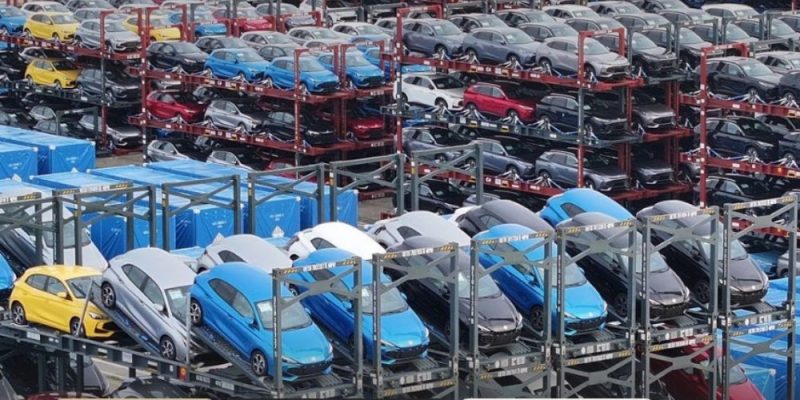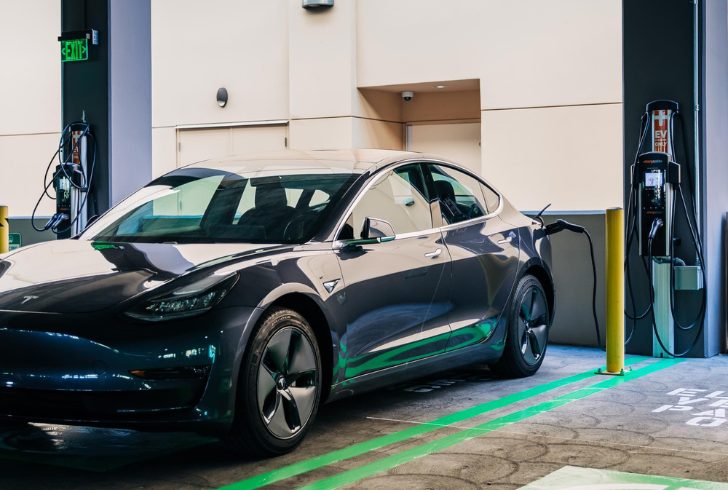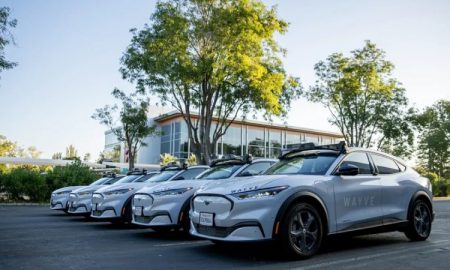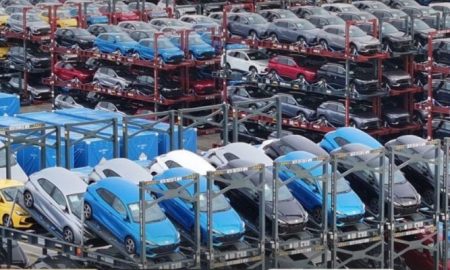
US Proposes Smart Car Ban Targeting Chinese and Russian Tech

In a significant move to protect national security, the US Commerce Department has proposed a smart car ban on the sale and import of vehicles equipped with specific technology from China and Russia. This decision stems from concerns over embedded software and hardware that could pose risks such as hacking and the unauthorized collection of personal data.
As smart vehicles increasingly rely on advanced technologies for connectivity and functionality, safeguarding against potential vulnerabilities has become paramount.
Understanding the Risks of Smart Vehicles
The investigation, initiated earlier this year, uncovered serious concerns related to the integration of foreign technology in smart cars. Secretary of Commerce Gina Raimondo highlighted the grave risks that could arise if adversaries gain access to vehicle systems. In extreme scenarios, these threats could enable foreign entities to remotely control multiple vehicles simultaneously, leading to accidents and disruptions on the roads.

Instagram | secraimondo | Secretary Raimondo warned of the severe risks of foreign entities gaining control over vehicle systems.
1. Potential Security Breaches – The presence of foreign technology raises alarm bells about the possibility of cyberattacks. Such attacks could allow adversaries to take control of a vehicle’s systems, posing a direct threat to public safety.
2. Data Privacy Concerns – The use of foreign technology can also compromise the privacy of drivers. Sensitive data, including personal location information, could be harvested without consent, leaving individuals vulnerable to various forms of exploitation.
While the proposed ban does not extend to vehicles already on the roads that may contain Chinese or Russian software, it aims to prevent future models from entering the market. The new regulations would apply to vehicles produced for the 2027 model year and beyond, reflecting the urgency of addressing these security vulnerabilities.
The Bigger Picture
This initiative is part of a broader effort by the United States to secure its technological supply chains, particularly against perceived threats from China. The growing prominence of connected cars in the automotive market has intensified competition, with China heavily investing in the sector. US officials are increasingly wary of the inroads made by Chinese manufacturers in Europe and beyond, raising concerns about potential data collection and security risks.
The proposed regulations focus on “connected vehicles,” a term encompassing various modern automobiles that utilize network connections for functionalities such as navigation, roadside assistance, and in-car entertainment. As the definition of smart cars continues to evolve, the need for stringent security measures becomes more critical.
The Regulatory Process
Following the announcement of the smart car ban, a public comment period will commence, allowing stakeholders to voice their opinions and concerns. This feedback will be crucial as the Commerce Department aims to finalize the regulations by the end of the current administration. Alongside the proposed ban, an economic analysis will assess the implications for automakers and consumers.
The Commerce Department’s actions are not motivated by economic protectionism, as emphasized by Secretary Raimondo. The intention is solely to address national security threats posed by foreign technology. This perspective resonates strongly with concerns about how foreign entities could potentially exploit personal data collected by smart vehicles.
Supporting the Automotive Workforce
Coinciding with the proposed smart car ban, the Biden administration has announced several initiatives to bolster support for American autoworkers. These initiatives aim to provide financial backing to small and medium-sized auto suppliers, ensuring their sustainability in a rapidly evolving market.

Instagram | summerlin | Investing in electric vehicle charging stations will accelerate the shift to cleaner transportation.
Key initiatives include:
1. Investment in Workforce Development
Programs designed to train workers for new jobs within the evolving automobile supply chain are crucial. This training will enhance the skills necessary for careers in electric vehicle technology, ensuring workers are prepared for future demands.
2. Funding for Electric Vehicle Infrastructure
Investment in electric vehicle charging stations will facilitate the transition to cleaner transportation, reinforcing the commitment to sustainable practices within the automotive industry.
As the administration continues to navigate the complex relationship between national security and technological advancement, these initiatives reflect a broader strategy aimed at fostering economic growth while safeguarding the interests of the American public.
Balancing Innovation and Security
The proposed smart car ban highlights the delicate balance between innovation and security in an increasingly connected world. By addressing the potential risks associated with foreign technology in smart vehicles, the US government aims to safeguard public safety and individual privacy.
This regulatory effort underscores the importance of vigilance in protecting national interests, while also paving the way for a future that embraces advanced automotive technology. As the situation evolves, it will be essential for stakeholders to engage in the conversation and contribute to shaping the regulations that govern this rapidly changing landscape.
More in Tech
-
`
What Quarters Are Worth Money? Tips to Identify Valuable Coins Today
In coin collecting, certain quarters stand out not just for their face value but for their potential worth, much beyond that....
June 21, 2024 -
`
How Does the Hubble Telescope Work and Where Is It?
Have you ever gazed at the night sky and marveled at the twinkling stars and wispy clouds of gas and dust?...
June 15, 2024 -
`
5 Savings Accounts That Will Earn You the Most Money in 2024
In 2024, choosing the right savings account is more critical than ever. With the array of options available, knowing which savings...
June 5, 2024 -
`
The Complete Relationship Timeline of Taylor Swift & Travis Kelce
When you think of unlikely couples, Taylor Swift and Travis Kelce might not be the first pair that comes to mind....
May 29, 2024 -
`
What is Business Administration and What Opportunities Does it Offer?
In today’s bustling world of commerce and industry, the term “business administration” often looms large, yet its true essence remains shrouded...
May 22, 2024 -
`
What is AI? Exploring the World of Artificial Intelligence
In today’s rapidly evolving technological landscape, the term “Artificial Intelligence” (AI) has become a buzzword that sparks curiosity, speculation, and even...
May 16, 2024 -
`
How Many Jobs Are Available in Real Estate Investment Trusts? Exploring Career Opportunities
Are you seeking a career path with a blend of financial savvy and a knack for the real estate market? Look...
May 9, 2024 -
`
The Staggering Net Worth of the Richest Podcaster Joe Rogan in 2024
Joe Rogan has become a household name, largely due to his immensely popular podcast, “The Joe Rogan Experience.” With a blend...
April 29, 2024 -
`
What Are Routing Numbers & Do Credit Cards Have One?
When managing your finances, understanding the various numbers and terms associated with your bank accounts and credit cards is crucial. A...
April 24, 2024















You must be logged in to post a comment Login